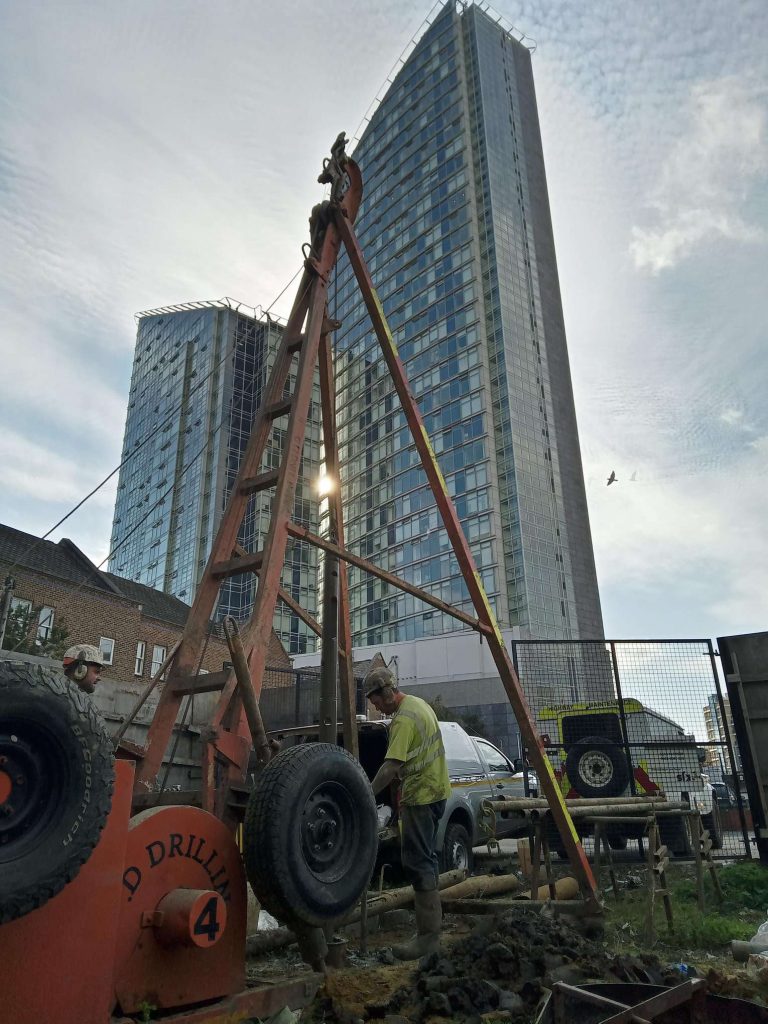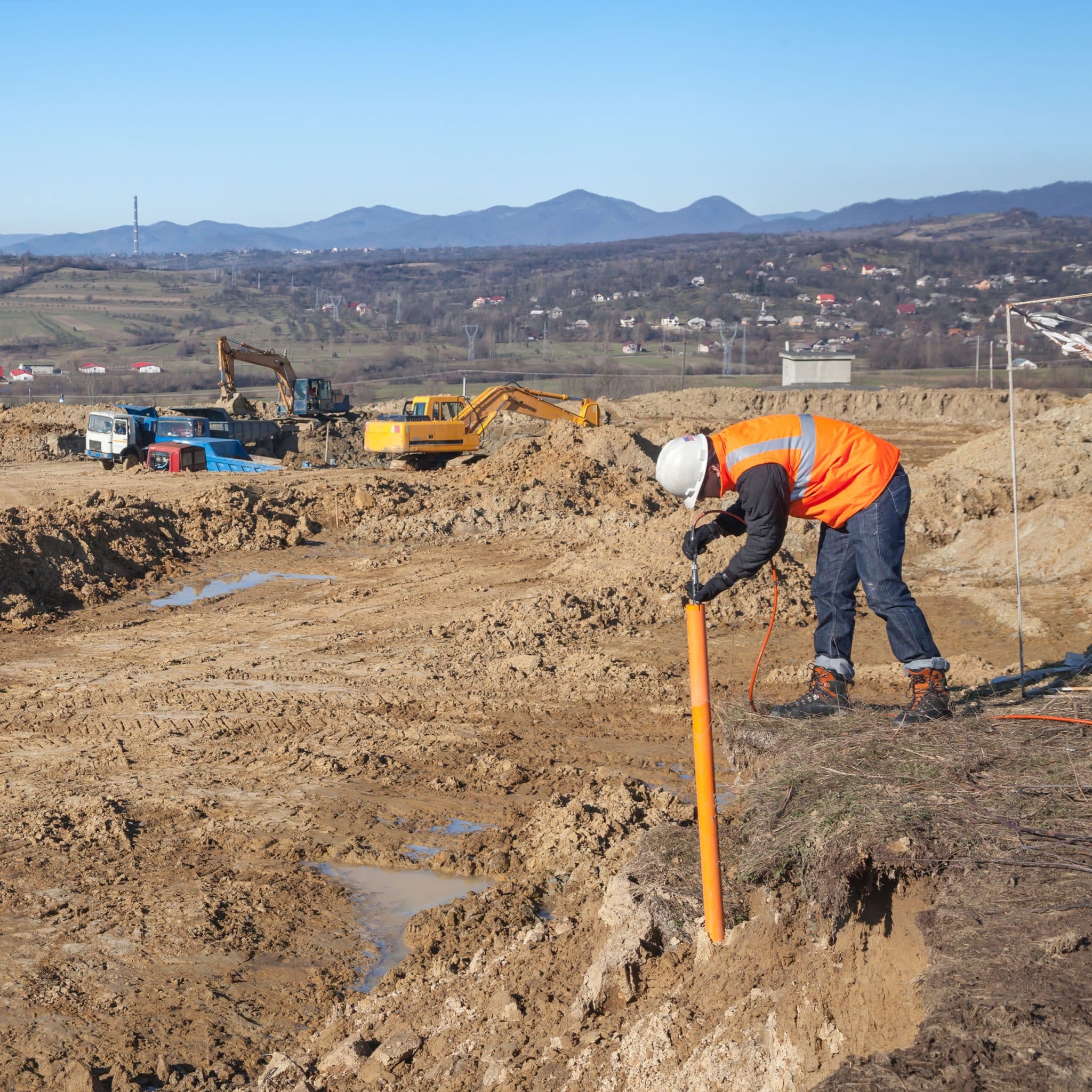Crucial Qualities of Effective Civil Consulting Engineers
Crucial Qualities of Effective Civil Consulting Engineers
Blog Article
Comprehending the Comprehensive Role of Geotechnical Engineers in Ground Examination and Dirt Evaluation for Building Tasks
Geotechnical engineers are important to the success of building and construction jobs, giving vital understandings with detailed ground examinations and dirt analysis. Their expertise in analyzing dirt actions and employing innovative screening strategies informs vital decisions that copyright architectural integrity and safety and security. By working together and identifying prospective threats with multidisciplinary groups, these professionals substantially affect task end results, including efficiency and cost-effectiveness. Nevertheless, the intricacies of their duty usually expand beyond these features, motivating a deeper exploration into the techniques they utilize and the implications of their searchings for on overall project feasibility.
Function of Geotechnical Designers
The pivotal role of geotechnical designers in building and construction jobs can not be overstated, as they give vital insights into soil habits and website problems. These professionals are entrusted with evaluating the suitability of the ground for different kinds of frameworks, ensuring safety and stability throughout the building and construction procedure. Their competence includes a vast array of tasks, consisting of website characterization, dirt sampling, and lab testing, which are critical for establishing the physical and mechanical buildings of the dirt.
Geotechnical designers utilize their findings to develop foundational designs that accommodate load-bearing requirements and mitigate risks connected to dirt settlement, slope, and liquefaction security. They play a crucial function in recognizing possible risks, such as groundwater variations and contamination, which can considerably affect job practicality. They collaborate with architects, civil designers, and contractors to ensure that geotechnical factors to consider are incorporated into the overall style and building phases.
Ground Investigation Methods
Ground investigation techniques create the backbone of geotechnical engineering, allowing designers to gain a detailed understanding of subsurface problems. These techniques are crucial for examining soil buildings, determining groundwater levels, and recognizing possible geological hazards.
Typical techniques consist of borehole exploration, which permits the extraction of soil samples at different midsts, giving essential data for analysis. Furthermore, sitting screening techniques, such as Conventional Infiltration Examinations (SPT) and Cone Infiltration Examinations (CPT), are employed to assess dirt toughness and thickness directly in the ground.
Geophysical approaches additionally play a significant role in ground investigations. Methods such as seismic studies and electric resistivity tomography aid assess subsurface features without extensive excavation. geotech engineer. These non-invasive techniques are especially valuable in big or delicate locations where disturbance should be decreased
Moreover, exploratory trenches can be dug deep into to aesthetically check soil layers and recognize any kind of anomalies. Each of these methods contributes unique insights, enabling geotechnical engineers to establish precise website assessments and notify layout choices. In recap, a combination of these ground investigation strategies is vital for successful building and construction jobs, ensuring safety and architectural stability.
Soil Evaluation Approaches
Soil analysis methods are crucial for understanding the physical and chemical residential or commercial properties of soil, which straight influence the design and building and construction of foundations and various other structures. Different techniques are used to evaluate dirt characteristics, making sure that geotechnical designers acquire exact information for notified decision-making.
One frequently made use of approach is grain dimension analysis, which determines the circulation of fragment dimensions within a dirt example. This is vital for classifying dirt types and predicting their actions under lots. One more essential look these up strategy is Atterberg limitations screening, which evaluates the plasticity and wetness material of fine-grained dirts, supplying insights right into their design buildings.

Field tests, such as Standard Penetration Examinations (SPT) and Cone Infiltration Examinations (CPT), offer important in-situ data regarding dirt toughness and stratification. Jointly, these soil evaluation approaches develop the foundation of geotechnical investigation, allowing engineers to create secure and effective structures tailored to the details problems of the site.
Threat Mitigation Methods
Implementing efficient threat mitigation methods is crucial for geotechnical designers to address possible obstacles in construction jobs. These techniques are essential in identifying, evaluating, and handling risks related to soil conditions, site security, and groundwater variations, which can adversely impact task end results.
One primary method involves conducting extensive website investigations that use innovative geophysical techniques and thorough dirt sampling. By getting precise information on subsurface problems, designers can make informed decisions on style and building and construction methods. In addition, employing anticipating modeling tools enables for the simulation of different situations, enabling designers to predict prospective problems and carry out safety nets.
In addition, developing clear interaction channels among task stakeholders promotes a joint approach to run the risk of management. Regular updates and examinations make sure that all celebrations know the developing website problems and can adjust their strategies appropriately.

Influence On Building Tasks
The performance of risk reduction approaches straight affects the general success of building jobs. Geotechnical engineers play a crucial role in this domain name, as their experience in ground investigation and dirt analysis informs critical decisions throughout the construction process. By precisely evaluating dirt conditions and determining potential risks, these experts make it possible my response for project teams to develop efficient solutions that minimize threats linked with ground instability, water infiltration, and other geotechnical difficulties.
The impact of complete geotechnical evaluation is noticeable in numerous aspects of building projects, including cost administration, task timelines, and structural stability. Early identification of concerns permits timely interventions, reducing pricey delays and budget overruns. An extensive understanding of website problems enhances the design and design procedure, ensuring that structures are developed to stand up to ecological stress and potential all-natural disasters.
Eventually, the contributions of geotechnical engineers are essential to the effective execution of building jobs. see this Their job not only cultivates safety and security and conformity with guidelines but also improves the lasting sustainability of frameworks, making certain that they execute effectively throughout their designated life expectancy. The partnership between geotechnical groups and various other stakeholders is vital for accomplishing ideal end results in building undertakings.
Verdict
To conclude, geotechnical engineers carry out a vital function in building and construction projects with comprehensive ground investigations and soil evaluations. Their experience in examining dirt habits, utilizing various examination techniques, and executing danger reduction approaches significantly adds to the architectural stability and safety of built settings. By teaming up with multidisciplinary groups, these specialists boost task effectiveness and ensure compliance with safety and security standards, ultimately leading to successful construction end results and lowered possible dangers.
Geotechnical engineers are indispensable to the success of building tasks, supplying vital insights with extensive ground investigations and dirt analysis.The pivotal duty of geotechnical engineers in building projects can not be overstated, as they give vital understandings into dirt actions and site conditions. Their proficiency incorporates a wide variety of tasks, including site characterization, dirt tasting, and laboratory screening, which are essential for establishing the physical and mechanical residential or commercial properties of the dirt.
By properly evaluating dirt conditions and determining possible hazards, these experts enable job groups to develop reliable services that minimize threats associated with ground instability, water infiltration, and various other geotechnical obstacles.
In conclusion, geotechnical designers carry out a critical function in construction jobs with thorough ground investigations and soil evaluations.
Report this page